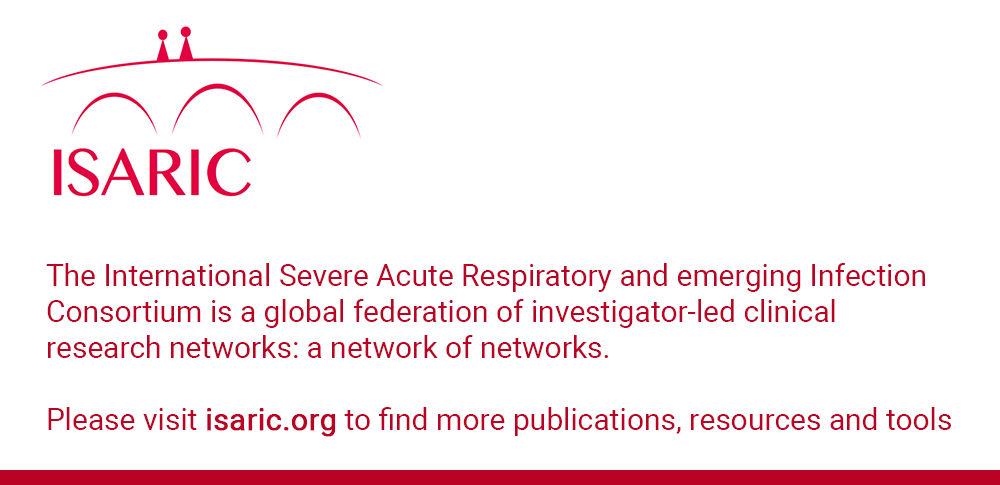
Zika COS Study Online Survey
by ISARICZika COS Project and Congenital Infections: A study to develop the Core Outcome Set (COS) for children affected by Zika's Congenital Syndrome Virus or other congenital infections.
ZIKAlliance’s Clinical Meeting in Cuba 12-14 August, 2017
by ZIKAllianceDr Fernando Bozza to give a talk about international collaboration during the Zika outbreak
by ISARICChallenges of scientific collaboration during an outbreak: the recent experience with Zika in Brazil
Institut Pasteur Shanghai-Chinese Academy of Sciences (IPS-CAS), a partner of the ZIKAlliance consortium, announced that it has entered into a collaborative research agreement with Chongqing Zhifei Biological Products Stock Co., Ltd. (Zhifei) for the clinical studies and commercialization of a recombinant Zika virus subunit vaccine developed by IPS-CAS.
The key message from this study is that the large uncertainty around the risk estimate needs to be further investigated because of a) the possible existence of co-factors that are yet to be validated, b) the assumptions that the authors needed to make in the absence of good data for the proportion of women who were infected during pregnancy.
15th International Dengue Course and ZIKAlliance WP1 meeting to be held in Cuba next August
by ZIKAllianceStudy of volunteer blood donors in Martinique provides new information about Zika virus infection
by ISARICThis pioneering study provides a precise follow-up of incident cases and seroprevalence in blood donors, and it also provides important insights into the management of blood donations during ZIKV outbreaks and into the natural history of ZIKV infection in adults. It suggests that the study of blood donors during outbreaks of emerging pathogens has become a key element of epidemiological surveillance.
A study performed by the Institut National de la Santé et de la Recherche Médicale (INSERM) team of Dr Ali Amara (U944, Paris, France) and published in Cell Reports sheds new light on the mechanisms allowing ZIKV to infect cells within the human nervous system. Amara et al. showed that the protein Axl is expressed in a number of brain glial cells and that the entry of ZIKV into these cells requires another protein, Gas6, to act as a bridge between the ZIKV particles and the glial cells.
ZIKAlliance Kick-off Meeting in Brazil
by ISARICHosted by University Sao Paulo Medical School at the Centro de Convenções Rebouças ZIKAlliance, the multinational and multidisciplinary consortium coordinated by Inserm, the French National Institute of Health and Medical Research, and created in response to a Horizon 2020 funding call by the European Commission’s Directorate-General Research and Innovation, has officially started its activities with the kick-off meeting held in Brazil over the 4th and 5th December 2016.
Zika Workshop Summary Now Available
by ISARICGloPID-R members hosted the “GloPID-R Zika Virus Research Workshop” in Sao Paulo, Brazil on November 30 – December 2, 2016 to facilitate collaboration between members on Zika funded research projects. The workshop’s aim was to identify and establish collaboration and synergies between the research and capacity development projects in support of the Zika virus response in Latin America and the Caribbean funded by GloPID-R members worldwide.
Global research platforms receive €30M to combat Zika Oxford --21 October 2016, ISARIC members are part of two successful bids to the European Union’s Horizon 2020 Research and Innovation Programme that will set up multinational and multi-disciplinary research consortia to combat Zika virus (ZIKV) infection and build pandemic preparedness in Latin America and the Caribbean over the next 3 to 5 years, the European Commission announced today.
Submit an article
We welcome contributions from members. Please submit an article for review by our editorial team.
Upload nowCategories
- Antibiotics (2)
- Asia (4)
- Child Health (1)
- Childhood (1)
- Clinical trials (5)
- Communications (Mesh) (1)
- Community Engagement (3)
- Coronavirus (24)
- COVID-19 (WEPHREN Resources) (14)
- CRF (2)
- Data Management (1)
- Data Management and Statistics (2)
- Disease-specific Guidance (3)
- Epidemics (Mesh) (4)
- Ethics and Informed Consent (1)
- Funding (5)
- Global Health (2)
- Global Health Research Ethics (3)
- Health Inequality (2)
- Health Policy and Management (4)
- Infectious diseases (17)
- Maternal/Fetal health during pregnancy (1)
- Operational/Governance (17)
- Pandemic preparedness (13)
- Pneumonia (3)
- Press Release (2)
- Publications (3)
- Regulations and Guidelines (5)
- Reports (2)
- Resources (11)
- Sampling (2)
- Statistics (1)
- Study Protocols (5)
- Training (9)
- Trial Design (7)
- Trial Management (5)
- Trial Operations (4)
- Vaccine safety (1)
- Workshops (3)